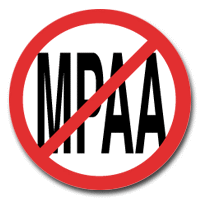The Internet’s success is largely attributable to the lack of government intervention in it. The online population has proven themselves capable of self-governance, yet governments persistently attempt to control it. In the United States, the lack of government control over the Internet has allowed it to remain a largely uncensored medium of communications. Government regulation combined with capitalism’s influence in communication mediums historically have proven dangerous to their continued success, and prime example of this is television.
Today we face a growing threat to the democratic nature of the Internet, as all Internet Service Providers (ISPs) last week had to meet the mandate put forth by the Communications Assistance for Law Enforcement Act (CALEA) to allow the FBI to wiretap all Internet users. This includes the ability to wiretap Voice Over Internet Protocal (VoIP) services. The use of wiretapping on the Internet will be limited to those who have obtained court warrants to do so, but nonetheless this is setting a dangerous precedent.
As ZeroPaid.com points out, this will become a tool of surveillance in an increasingly Orwellian society that has already forsaken to many freedoms for a little temporary safety. While surely incidents of Internet surveillance go on in secrecy, this mandate now legalizes the act, and makes it all the more simplified. They furthermore rightly suspected, as did I, that the MPAA and RIAA will lobby for to use this new ability to wiretap suspected file-sharers. It should come as no surprise that they won this right.
The real danger comes when the FBI and corporations abuse this new ability by manipulatively using techniques such as heresay to take the place of actual evidence and reason to qualify as probable cause, or even more dangerously foregoing probable cause all together when obtaining a court issued warrant. This will most certainly happen as many lawsuits placed by the RIAA and MPAA couldn’t win an argument for reasonable suspicion, a far weaker standard of evidence.
While it may sound rash, I think we are on the brink of watching the Internet suffer the same fate as television. This could be the beginning of the end for the Internet as we know it. More and more net governance laws are being created, which seek to further regulate and control this seemingly uncontrolled communications medium. Make no mistake, this is only the beginning of far stricter net governance and surveillance. Governments and corporations alike greatly fear the Internet, and rightly so, as it puts the power back in the people’s hands and that’s the last thing they want to see happen. They will do everything they can to gain the control over the Internet that they have on television.
If we want to enjoy the continued uncensored, unregulated democratic nature of the Internet, it is incumbent upon us to do everything in our power to retain the integrity of the Internet.
Originally posted on May 22, 2007 @ 7:40 pm
 The MPAA has decided to “copy” the
The MPAA has decided to “copy” the